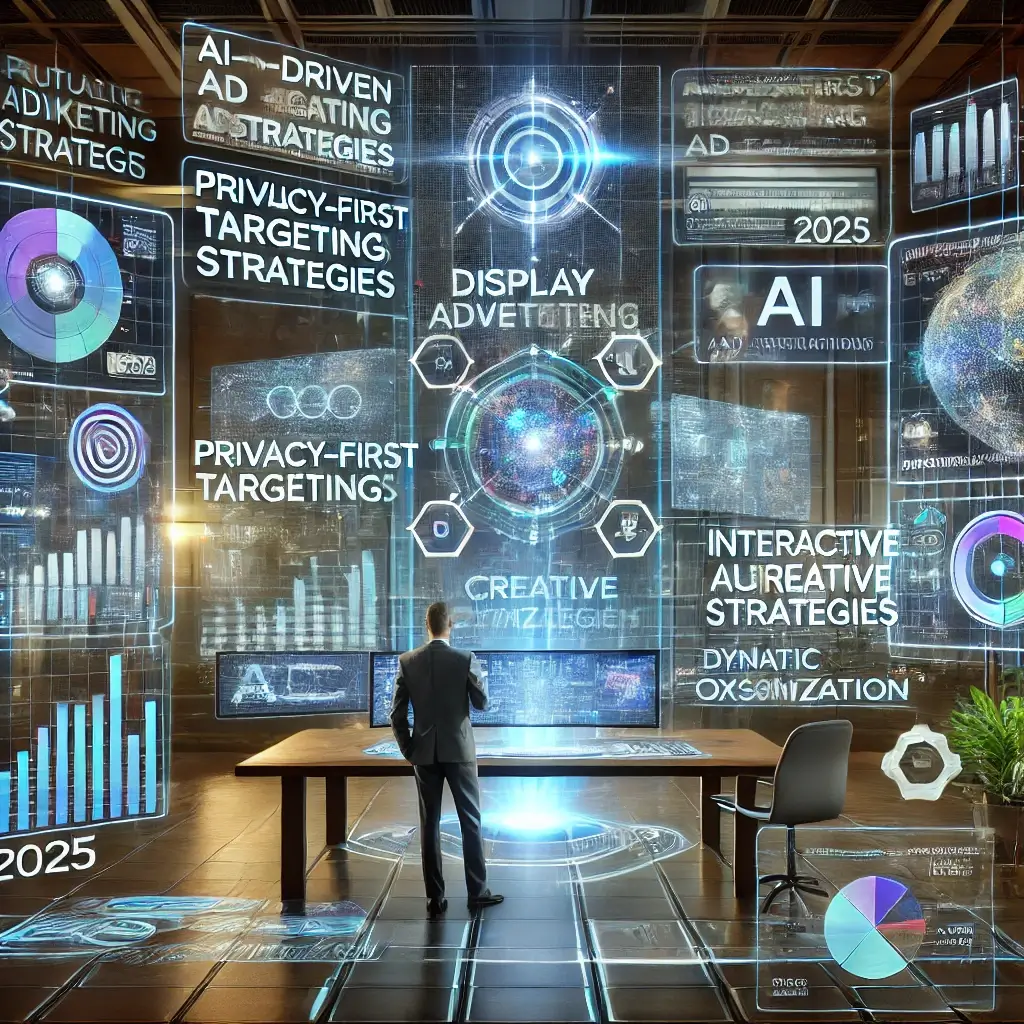Maximizing ROI: How Immersive Ad Formats Are Transforming Digital Marketing
The Current State of Display Advertising
Display advertising in 2025 is not just about placing ads; it’s about engaging audiences in meaningful and innovative ways. With technology advancing rapidly and consumer expectations evolving, businesses must navigate a digital landscape where creativity and compliance go hand in hand. By 2025, global digital ad spending is projected to surpass $200 billion, underscoring the stakes for marketers aiming to capture attention and drive results.
The Digital Marketing Revolution
This year marks a turning point as brands embrace immersive ad formats, AI-driven personalization, and privacy-focused targeting. These trends are not just reshaping advertising but also redefining how brands connect with audiences. The demise of third-party cookies and the rise of AI-powered analytics present both challenges and opportunities. Advertisers must innovate to stay relevant, harnessing tools that prioritize user experience while meeting strict privacy standards.
Article Overview
In this article, we’ll explore transformative trends in display advertising, diving deep into the practical strategies businesses can adopt to thrive in this competitive environment. Whether it’s leveraging AI for campaign optimization or experimenting with augmented reality ads, the opportunities are vast for those ready to adapt and innovate.
First-Party Data Revolution
The transition to first-party data isn’t just a trend; it’s a necessity. Advertisers are investing in tools like customer data platforms (CDPs) to:
Collect and analyze user data ethically and transparently (GDPR and CCPA compliant).
Build stronger customer relationships through personalized experiences.
Enhance targeting accuracy without compromising privacy (IAB, 2023).
Cookie-Less Future
With third-party cookies phasing out, contextual targeting and AI-driven insights are becoming indispensable. Semantic analysis tools are enabling brands to deliver highly relevant ads by analyzing webpage content, ensuring ads are shown in the right context without invasive tracking methods (Google Ads, 2023).
Immersive and Interactive Ad Formats
Augmented Reality (AR) Advertising
AR is transforming the way consumers engage with ads, offering:
Virtual try-ons for products, enhancing online shopping experiences.
Interactive storytelling that deepens emotional connections.
Gamified ads that encourage active participation (eMarketer, 2023).
Shoppable Ads
Integrating e-commerce functionality into display ads streamlines the purchase process, allowing users to:
Click on products within an ad to view details and make purchases.
Experience seamless transitions from discovery to checkout.
Boost conversion rates by removing friction in the customer journey.
AI and Machine Learning: The Cornerstones of Optimization
Real-Time Personalization
AI enables advertisers to craft personalized ad experiences by:
Analyzing user behavior and preferences in real time.
Predicting intent and tailoring messages to individual needs.
Delivering dynamic content that resonates with diverse audience segments (McKinsey, 2023).
Campaign Automation
From bidding strategies to performance tracking, AI-powered tools are making campaigns more efficient by:
Automating routine tasks, freeing up resources for creative innovation.
Providing actionable insights to refine strategies on the fly.
Enhancing ROI through smarter budget allocation.
Actionable Strategies for Advertisers
Invest in Privacy-First Technologies
Adopt tools like consent management platforms (CMPs) to ensure compliance with global regulations. Prioritize transparency to build trust and loyalty among consumers.
Experiment with Emerging Formats
Test immersive formats like AR and gamified ads to capture audience attention. Use shoppable ads to directly link ad engagement with sales metrics.
Leverage AI for Optimization
Incorporate AI-driven platforms to automate bidding, segment audiences, and personalize ad content. Use predictive analytics to anticipate trends and adjust strategies proactively.
Enhance Measurement Capabilities
Invest in advanced attribution models to understand cross-channel performance. Focus on incrementality testing to measure the true impact of campaigns.
Real-World Success Stories
Case Study: Global Fashion Retailer
By adopting AR ads, a leading retailer saw:
A 300% increase in engagement rates.
A 50% boost in online sales within six months.
Improved brand recall among younger audiences.
Case Study: Tech Startup
A B2B tech company used AI-driven optimization to:
Reduce cost per lead by 40%.
Triple its conversion rates over 12 months.
Achieve a 200% ROI on its advertising spend.
The Future of Display Advertising
In 2025, success in display advertising demands a blend of creativity, technology, and compliance. Brands must embrace the challenges of a privacy-focused digital world while leveraging innovations like AI and immersive formats to stand out. By adopting the strategies outlined in this article, businesses can not only meet but exceed their advertising goals, driving growth and fostering deeper connections with their audiences.
For those ready to innovate, the future of display advertising is bright. As the digital landscape continues to evolve, staying agile and forward-thinking will be the keys to long-term success.
References
Statista. (2024). Global Digital Advertising Spending Statistics. Retrieved from [https://www.statista.com]
Interactive Advertising Bureau (IAB). (2023). Privacy in Advertising: The Next Decade. Retrieved from [https://www.iab.com]
Google Ads. (2023). Contextual Advertising Trends. Retrieved from [https://ads.google.com]
eMarketer. (2023). Emerging Trends in Interactive Ad Formats. Retrieved from [https://www.emarketer.com]
McKinsey & Company. (2023). AI in Advertising: Strategies for Growth. Retrieved from [https://www.mckinsey.com]
